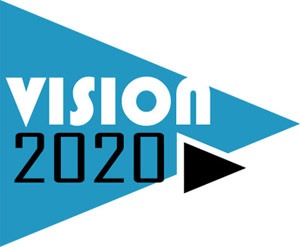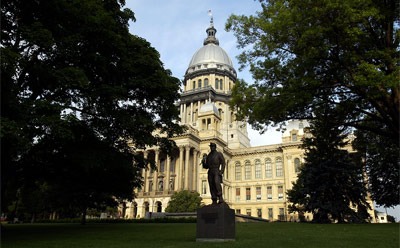The Northern Illinois University Student Association hosted six state Republican lawmakers Wednesday morning at the Holmes Student Center Sky Room for a news conference to address the issue of college affordability.
“The rising cost of a college education is becoming the main obstacle to obtaining a degree,” Student Association President Jack Barry said in a GOP news release. “The top priority should be to preemptively reduce costs and ensure financial aid remains available to students.”
House Republican Leader Tom Cross (R-Oswego), along with State Reps. Bob Pritchard (R-Hinckley), Tom Demmer (R-Dixon), Joe Sosnowski (R-Rockford/Belvidere), Mike Tryon (R-Crystal Lake), Mike Fortner (R-West Chicago), and Kay Hatcher (R-Yorkville) unveiled a package of legislation they say is designed to make college more affordable for the families of college-bound middle-class Illinoisans.
“Education beyond high school is critical for individuals to get a good paying job and for attracting business to locate in Illinois,” said Pritchard, who represents NIU’s district and serves on the House’s Higher Education and Appropriations-Higher Education committees, in a press release.
“The state has disinvested in higher education for more than a decade, to the point that public universities now receive less than a quarter of their operating funds from the state, ” Pritchard later told the Daily Chronicle. “Colleges and universities are forced to trim expenses and increase tuition. … That’s creating a lot of stress.”
 NIU has over the past decade undertaken many measures that have resulted in cost savings in an effort to minimize the effects of diminishing state support for higher education, all the while increasing the availability of institutional merit aid as one of its Vision 2020 priorities.
NIU has over the past decade undertaken many measures that have resulted in cost savings in an effort to minimize the effects of diminishing state support for higher education, all the while increasing the availability of institutional merit aid as one of its Vision 2020 priorities.
“The key driver in fees has been the loss of general revenues over the years,” NIU President John G. Peters told the Senate Executive Committee June 18. “We really need to help get the costs down for the students.”
College affordability is a priority for NIU, which is committed to student career success, especially for its first generation college students. It recently approved a slight two percent increase in the tuition incoming students would pay beginning this fall. College costs are affected by external factors, including state funding, operating costs and economic indicators in addition to other state and federal regulations.
Public universities in Illinois are subject to the state’s Truth-in-Tuition policy, which locks in the cost of tuition for nine semesters. Students who do not graduate by the end of that period will be charged tuition rates paid by students who enrolled one year after them for the next three semesters.
This requires institutions to anticipate revenue and expenses over the course of time.
However, the single most important policy issue facing the state is pension reform, and the six-step plan under consideration in the General Assembly and by the committee of 10 would be an important measure in providing universities with some relief from regulation and unfunded mandates, easing budgetary pressures and ultimately helping universities such as NIU stabilize the costs of delivering a world class education.
“Pension reform is the public policy problem in the state of Illinois,” Peters said. “If this is solved, everything else in the State of Illinois will begin to flow.”
While the House Republican plan does not address cost-savings at universities, it would create a $1,000 tax credit to help middle class families pay for college expenses at an Illinois accredited school. The credit would accrue for each semester that the eligible student is supported by the eligible taxpayer.
To be eligible for the credit, the family or the student must have the following status: attend a MAP-approved Illinois institution on at least a half-time basis with tuition and fees greater than $1,000, be an Illinois resident and a U.S. citizen or eligible non-citizen, and the family must have an adjusted gross income of less than $150,000. Those already receiving Illinois MAP grants would not be eligible.
The package also includes legislation that will “unlock” the limited tax deduction rights currently granted to Illinois residents who are saving for their children’s college education.
Under current Illinois law, this “upfront” deduction is only offered to contributors in a state administered College Savings Pool account or the Illinois Prepaid Tuition Trust Fund. The House Republican proposal will make this upfront Illinois individual income tax deduction accessible to all families who are saving money under the umbrella of an approved 529 savings program for up to $10,000 of annual contributions made by a taxpayer.
“As a professor at Northern Illinois University, I know how that higher education is a necessity for anyone who wants a stable career,” Fortner said. “We should be doing everything we can to provide students affordable opportunities to get their degree.”
“Higher education is a necessity to make companies competitive,” Demmer added. “Getting a college degree proves to employers that you will strive to be the best, while teaching you to think outside the box.”
“We need to look for ways to help students cope with the rising cost of college,” Sosnowski said. “Our plan gives some relief in the form of a tax shielded college savings account, and a tax credit for middle class families.”
“We’ve seen too many young people not able to achieve their full potential because we haven’t made educational opportunities available to them,” Cross said. “Preparing young people for the workforce of tomorrow is key to building a stronger Illinois.”
The legislation is contained in two separate bills: House Bill 3640, which contains state tax credit language, and House Bill 3641, which is a tax deduction bill.



